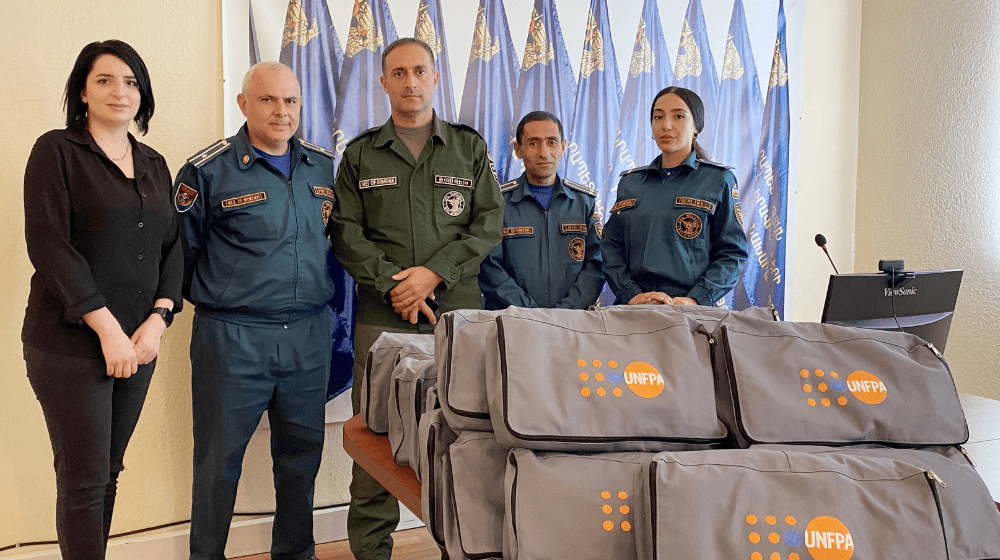“After the Spitak earthquake, my colleagues and I went there on a voluntary basis to help people. Hopefully we managed to save people that were trapped under rubble, also transferred some children here,” said Svetlana Zadoyan, head of the therapeutic department of Artashat Medical Centre, who knows from her own experience how important it is to be prepared to properly respond to emergency situations, - "There is a high need to such courses, because we are in a seismic zone. We have to be ready every second, every minute, we should be prepared.”
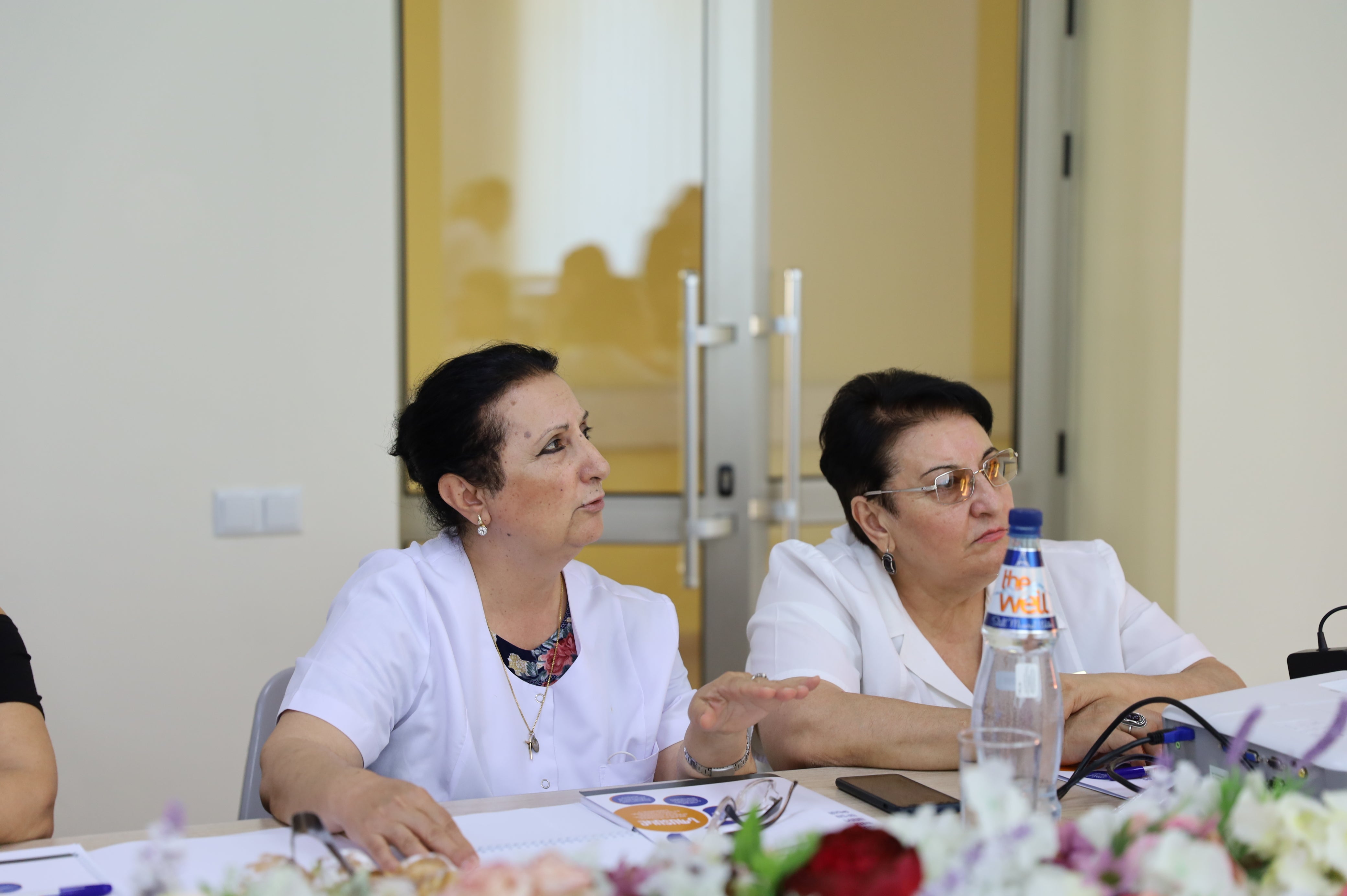
Svetlanа Zadoyan is one of the participants of “Reproductive Health in Emergency Situations” training that has been conducted by ARNAP-Disaster Risk Reduction Platform with the financial support from UNFPA since 2017.
"We have conducted six courses in Ararat: three for the fire and rescue squad, the other three for medical centers. Also, we have participants from community health centers - the Governor’s Office supported us in this matter. This is a one-day and is informative in its character. Our goal is to provide knowledge, information about the MISP - the Minimum Initial Service Package, and the peculiarities of reproductive health issues in emergency situations. The course includes practical and theoretical parts," says Vahan Harutyunyan, the training coordinator from ARNAP Foundation.
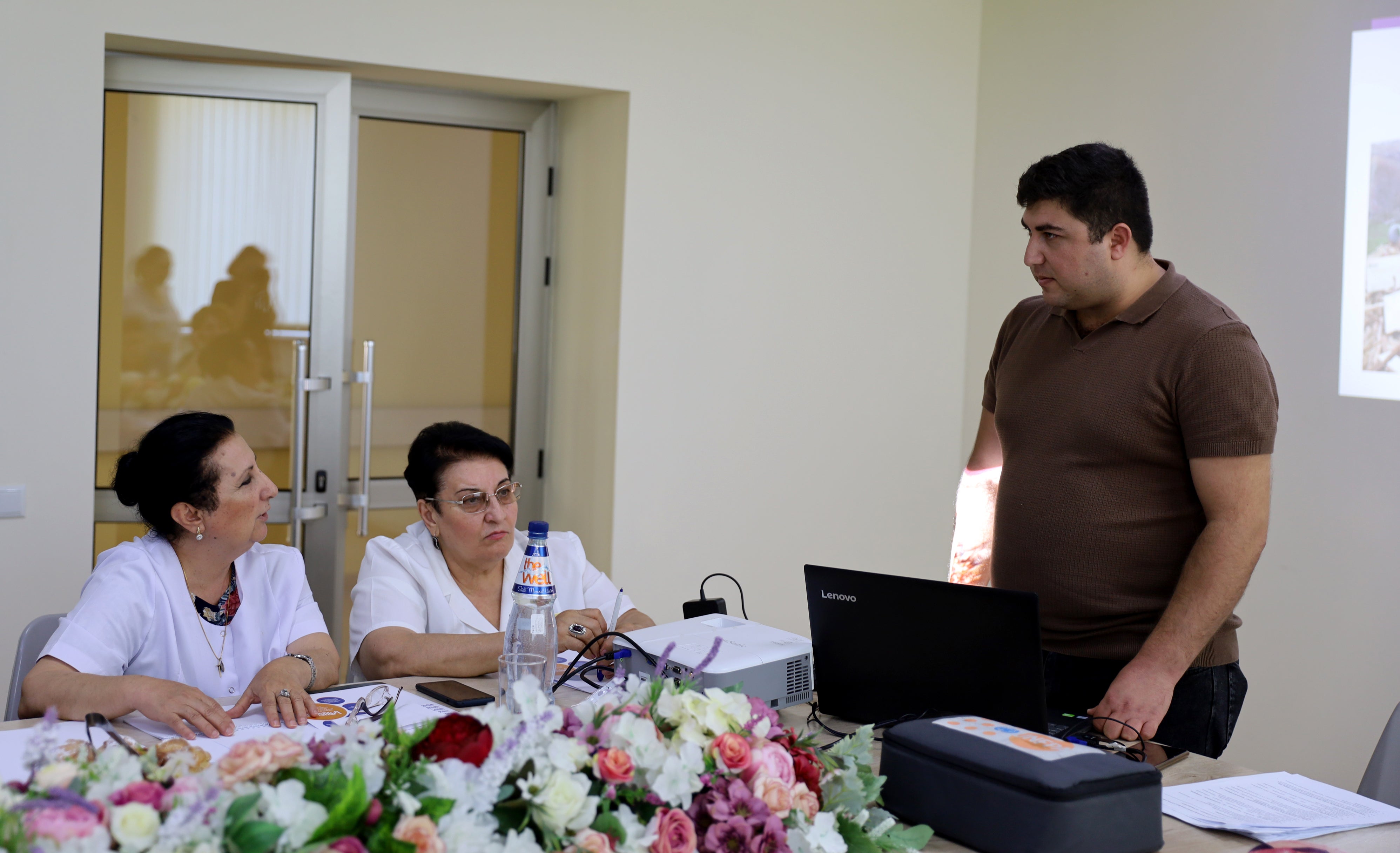
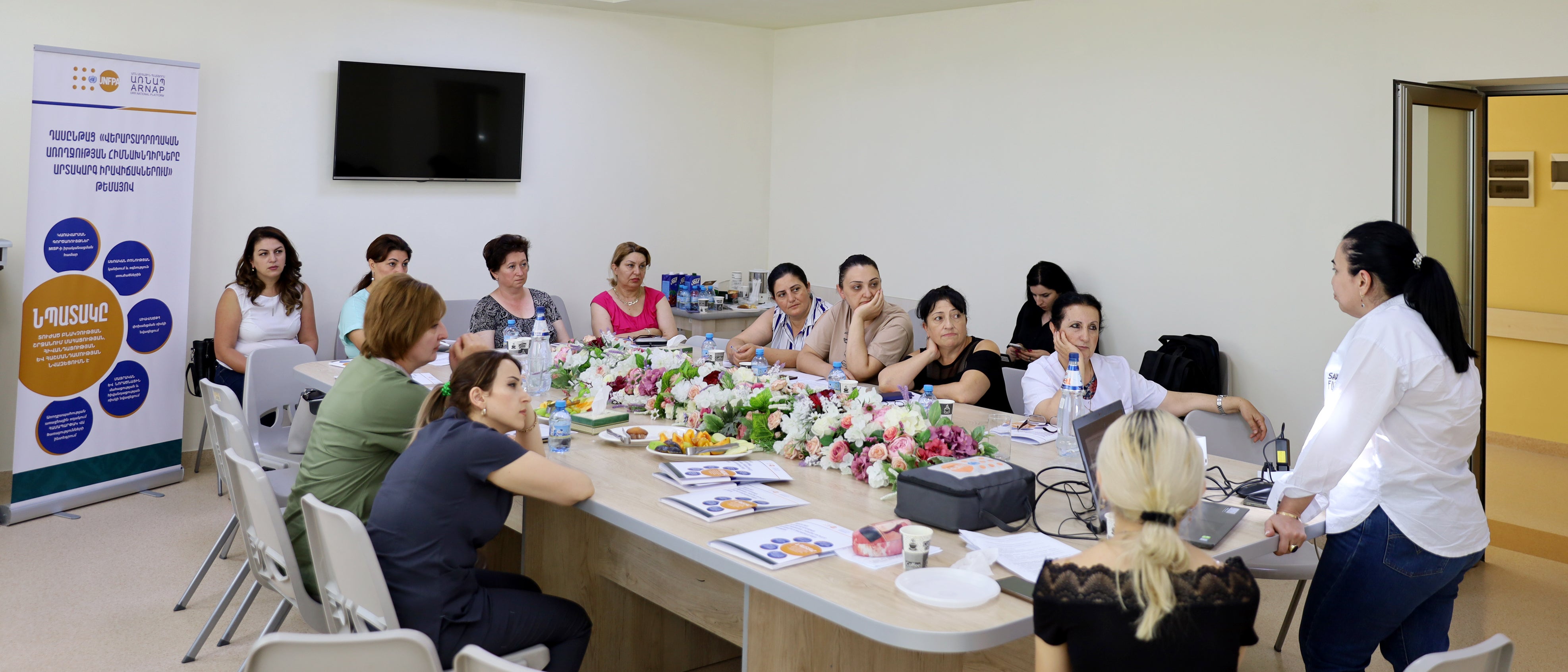
Each year the training course is conducted in one province of Armenia. This year it was Ararat province. Around 122 specialists: doctors, nurses, midwives, firefighters and rescuers participated in the initiative.
"During the war and pandemic we worked almost with the same rhythm, the working days were very tough, and the same is now. I'm at the workshop now, but so many people called me," said Marine Sargsyan, who is one of the midwives of the Ararat Medical Center. "I highly appreciate the importance of such courses and I am happy that the administration encourages these initiatives and we have the opportunity to gain new knowledge."
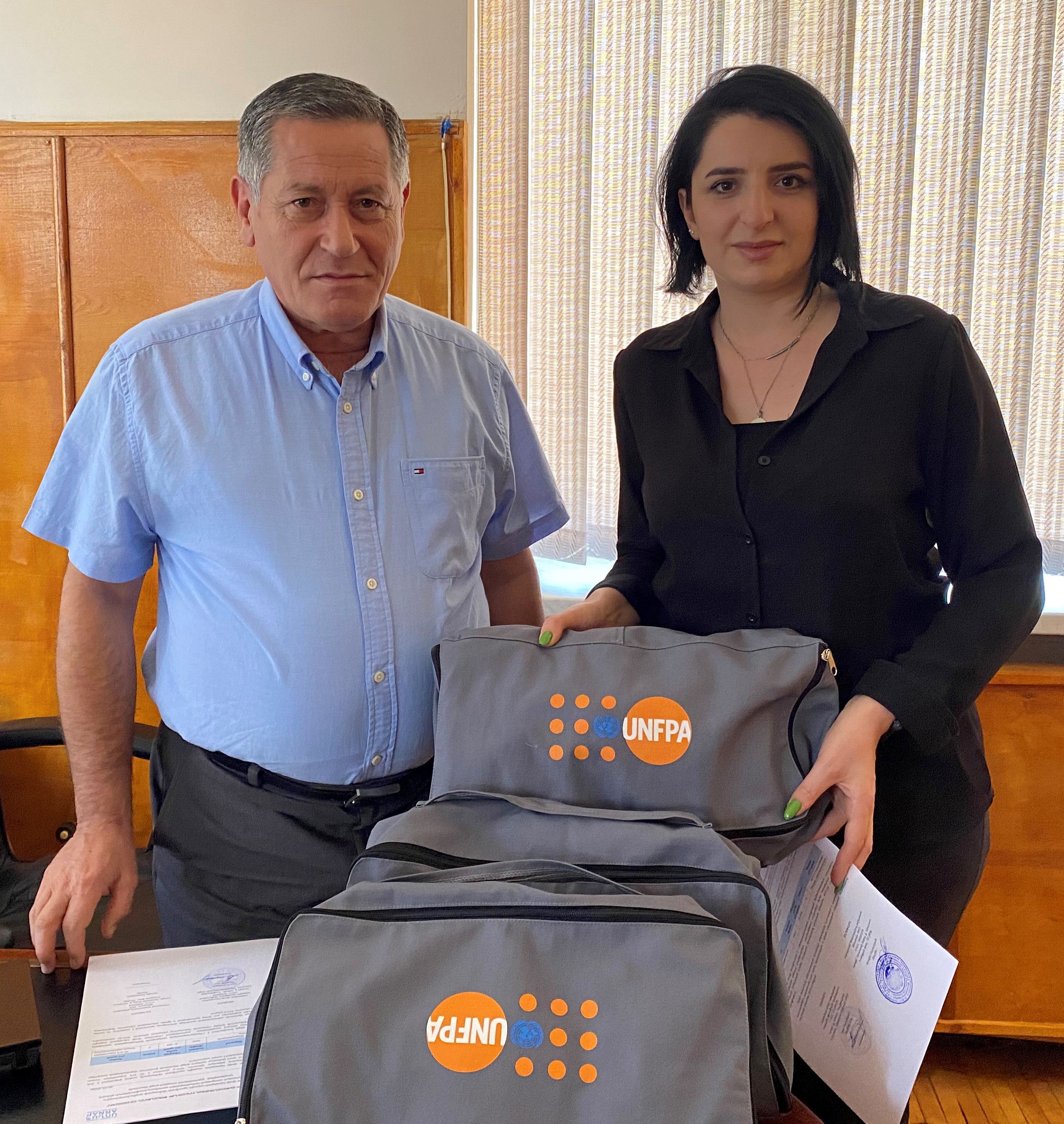
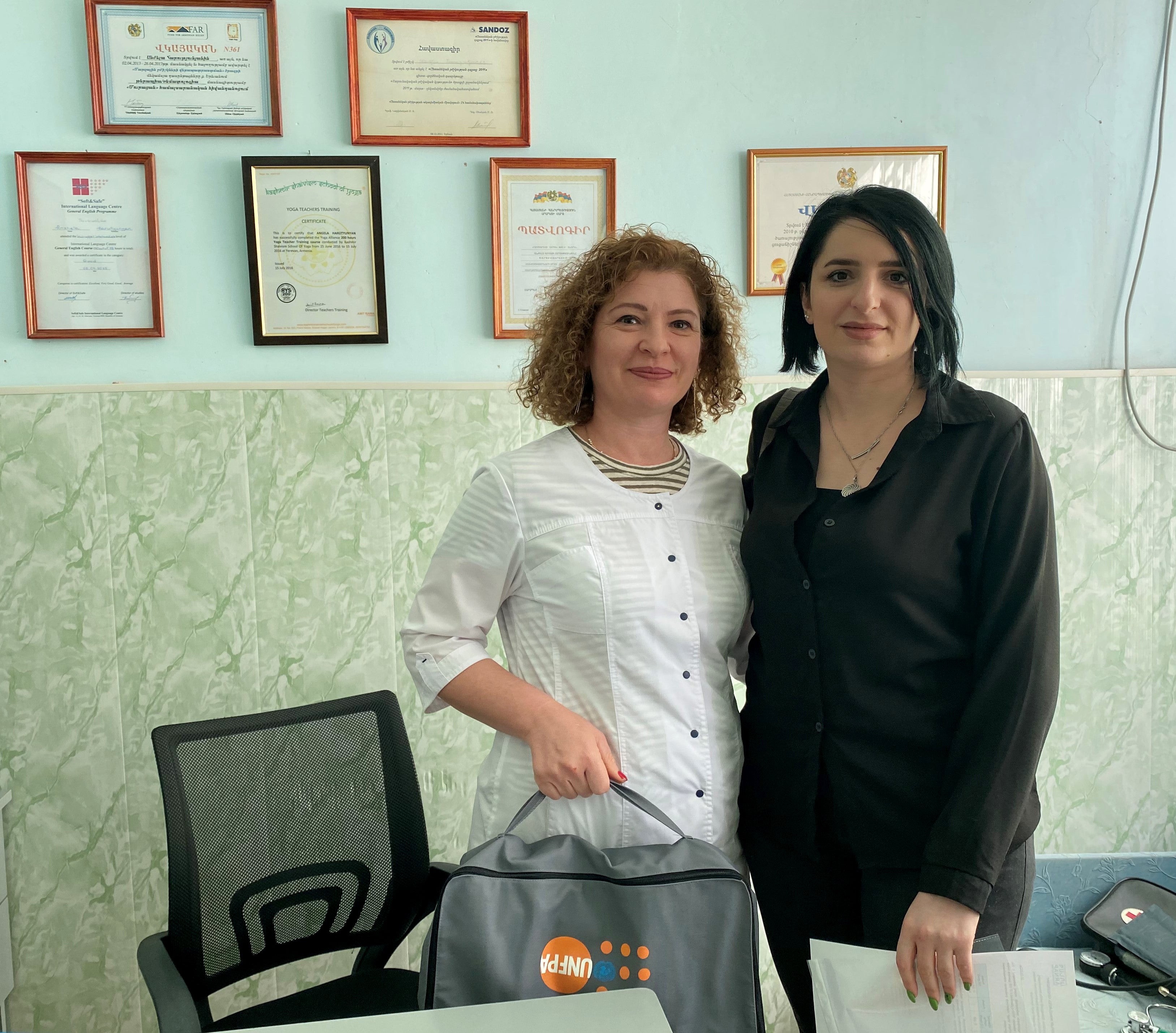
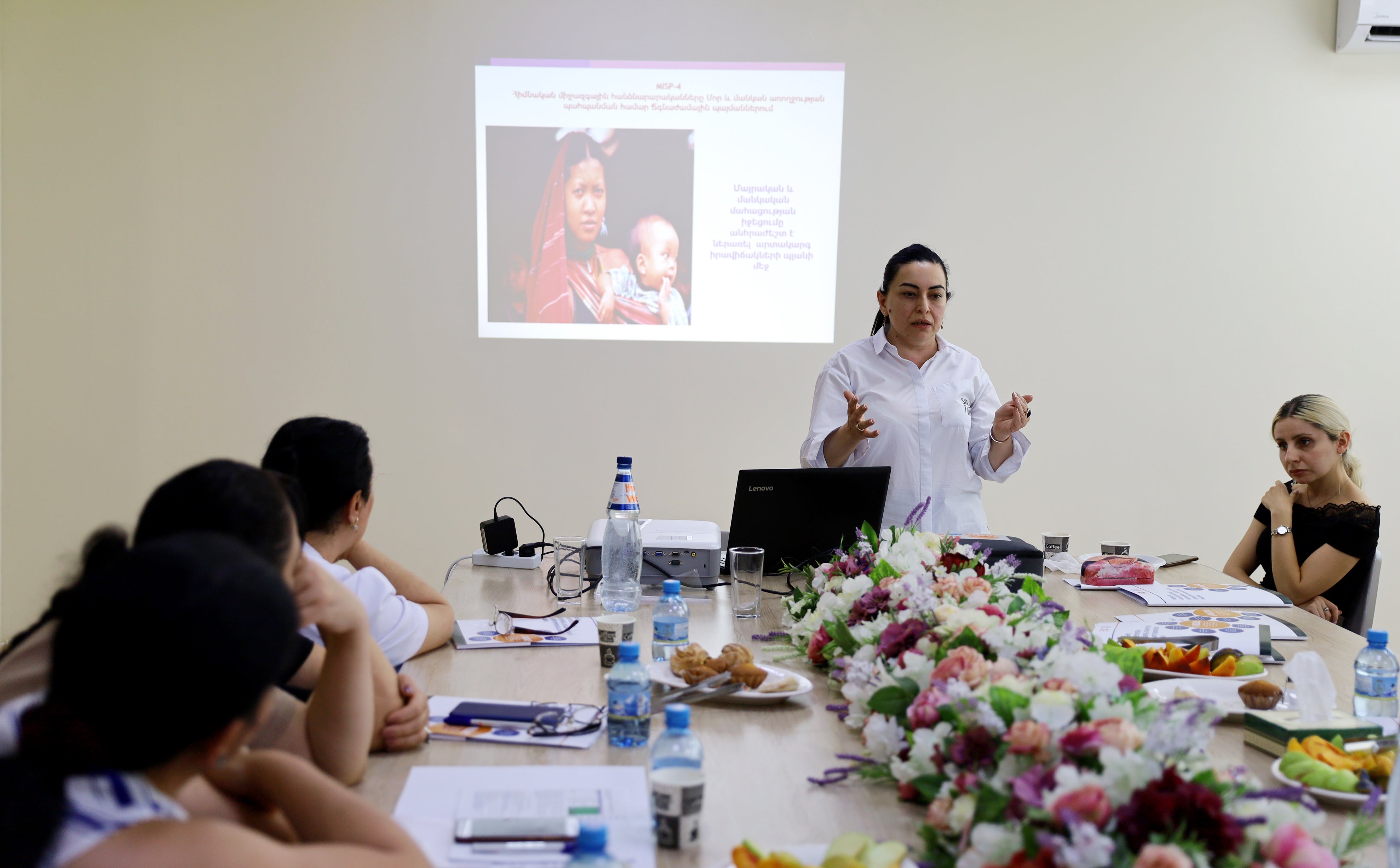
"We all have a subconscious defensive reaction, we always think that the problem will not concern us, while the reality can be different. As a doctor, I can say that the knowledge we gain through this training can guarantee our safety tomorrow. It would be good if these courses would be conducted in a periodical manner, and even more, the doctors should get continuing professional development (CPD) credit points for this course," says Nune Asryan, the head of Primary healthcare department at the Institute of Perinatology, Obstetrics and Gynecology, "The latest developments - the epidemic, the war, and also the earthquake show the importance of this knowledge and the value of right and transparent management, coordinated steps and that each one knows his/her responsibility and the panic is mitigated”.


